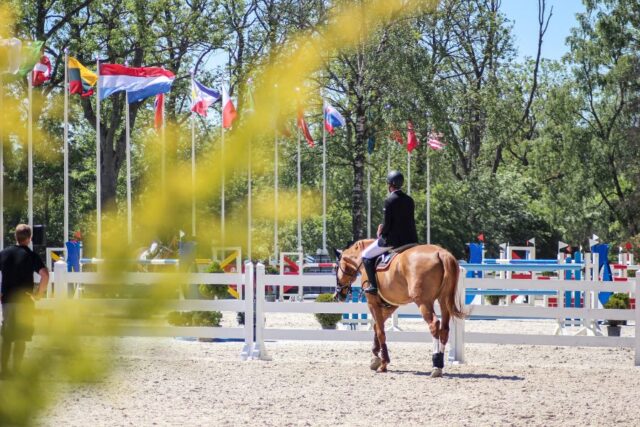Organizing an equine event in North Carolina can be a thrilling yet challenging venture.
Whether you’re planning a horse show, competition, or an equestrian gathering, meticulous preparation is the key to ensuring a smooth and successful event.
From selecting the ideal location to managing logistics and ensuring the well-being of both horses and participants, several essential steps can simplify the process and make your next equine event in North Carolina a seamless experience.
Organizing Your Next Equestrian Event
Selecting the Perfect Venue
The success of any equine event hinges significantly on the choice of venue. North Carolina offers a wide range of beautiful locations suitable for equine gatherings. Consider venues with adequate space, appropriate facilities, and amenities such as stables, riding arenas, ample parking, and access to veterinary services.
The Tryon International Equestrian Center, Carolina Horse Park, or local farms and ranches often offer fantastic venues for such occasions.
Planning and Preparation
Thorough planning is the backbone of a successful equine event. Begin by establishing a clear timeline and checklist outlining all necessary tasks, including obtaining permits, arranging for accommodations, securing vendors, and organizing promotional activities.
Create a comprehensive schedule that includes competition timings, warm-up sessions, and any auxiliary events or entertainment for participants and spectators.
Moreover, prioritize safety measures for both horses and attendees. Ensure that the venue meets all safety standards, including secure fencing, well-maintained footing, and readily accessible veterinary care. Implementing a strict biosecurity plan is also crucial to prevent the spread of contagious diseases among horses.
Streamlining Registration Processes
Simplify the registration process for participants by offering online registration options. Utilize user-friendly platforms or software that allow easy submission of entry forms, payment processing, and communication of event details.
Providing clear instructions and deadlines for registrations will help streamline the process and minimize last-minute complications.
Additionally, offer support and guidance for participants traveling with their horses. Provide information on local accommodations, feed stores, farriers, and veterinary services, facilitating a stress-free experience for both humans and horses.
Efficient Logistics Management
Efficient logistics management is essential for a hassle-free equine event. Coordinate transportation for horses, ensuring their safe arrival and departure from the venue. Arrange for designated parking areas for trailers and allocate space for tack stalls and equipment storage.
Consider factors like accessibility, traffic flow, and ease of navigation within the venue to prevent congestion and confusion.
Portable Horse Stalls
One crucial aspect often overlooked in equine events is the provision of appropriate accommodation for horses. Portable horse stalls offer a flexible and convenient solution to cater to the needs of these magnificent animals. These stalls are essential for providing a safe and comfortable space for horses to rest and prepare for their performances.
When selecting a venue, consider its capacity to accommodate portable horse stalls. These stalls should be durable, well-ventilated, and easily assembled, ensuring the well-being of the equine participants. Collaborate with suppliers or rental companies specializing in portable stalls to ensure their availability and proper setup at the event site.
Portable horse stalls not only contribute to the comfort of the horses but also aid in efficient logistics management. They provide designated spaces for horses to stay, minimizing congestion in the barn area and facilitating easy access for trainers, riders, and veterinarians.
Additionally, these stalls offer a sense of familiarity and security for horses, keeping them healthy and reducing stress levels during their stay at the event. Ensure that the stalls are equipped with proper bedding, water, and feed to maintain the horses’ health and happiness throughout the event duration.
Moreover, having a designated area for portable stalls enhances the overall aesthetics of the event. Organizers can arrange the stalls in an orderly manner, creating a visually appealing setup for participants and spectators alike.
Prioritize the setup and maintenance of these portable horse stalls as a fundamental component of logistics management. Consider allocating a team responsible for stall supervision, ensuring cleanliness, and promptly addressing any issues that may arise.
Promotion and Engagement
Effective promotion plays a key role in attracting participants and spectators to your equine event. Utilize social media platforms, local publications, and equestrian forums to create buzz and generate interest.
Engage with the equestrian community by sharing event updates, behind-the-scenes glimpses, and stories of participating horses and riders.
Consider offering incentives such as early bird registration discounts or promotional packages to encourage participation. Collaborate with local businesses or sponsors to enhance the event experience by organizing exhibitions, educational workshops, or entertainment activities.
Prioritizing Participant Experience
To ensure a memorable and enjoyable experience for participants, prioritize their needs and comfort. Offer adequate amenities such as restroom facilities, food vendors, and shaded areas for relaxation. Consider providing veterinary support on-site to address any health concerns promptly.
Facilitate networking opportunities by organizing social gatherings, rider meet-and-greets, or awards ceremonies. Acknowledge and appreciate participants’ efforts by presenting quality awards and prizes, fostering a sense of accomplishment and motivation for future events.
Post-Event Evaluation and Feedback
After the event, conduct a comprehensive evaluation to assess its success and gather feedback from participants, spectators, and stakeholders.
Analyze the strengths and areas for improvement to enhance future events. Encourage open communication and welcome suggestions to refine organizational strategies and elevate the overall event experience.
Wrapping Up
Organizing a successful equine event in North Carolina requires meticulous planning, efficient execution, and a keen focus on participant satisfaction and safety.
By selecting an appropriate venue, meticulous planning, streamlined registration processes, efficient logistics management, effective promotion, prioritizing participant experience, and conducting post-event evaluations, you can ensure a seamless and enjoyable equine event that leaves a lasting impression on attendees and contributes positively to the equestrian community.
Integrating portable horse stalls into the logistical plan plays a crucial role in ensuring equine comfort and safety, which contributes significantly to the overall success of the event.














